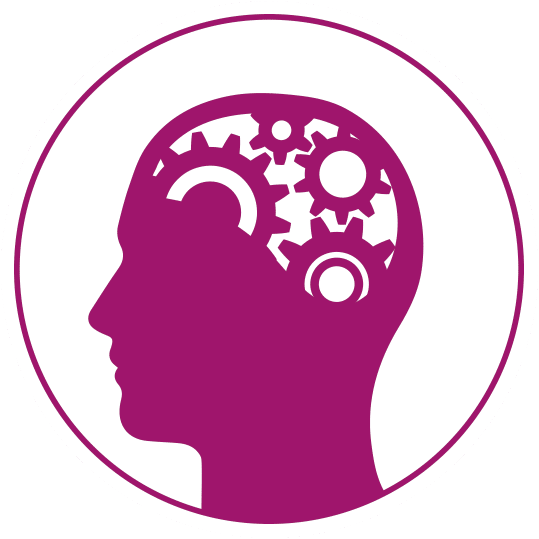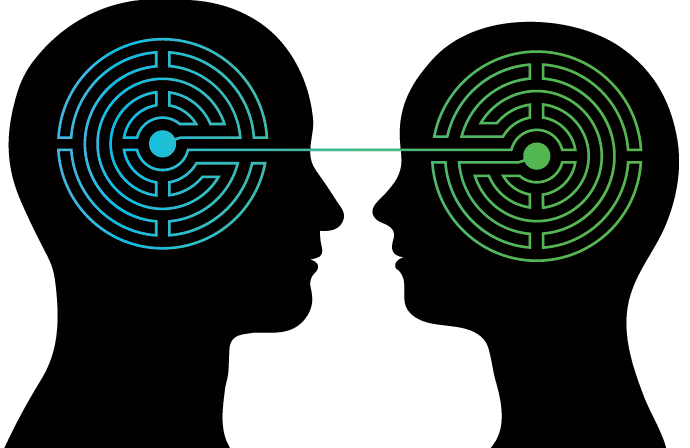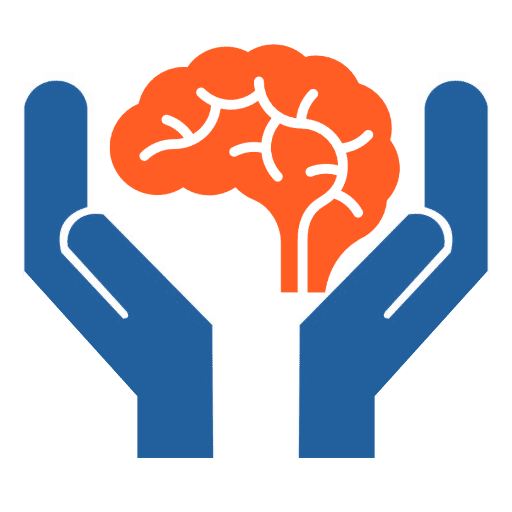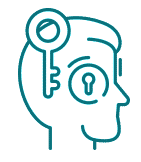Services
Offering a wide range of therapeutic modalities

Cognitive Behavioral Therapy
Helps patients understand the thoughts and feelings that influence behaviors. CBT is commonly used to treat a wide range of disorders, including phobias, addictions, depression, and anxiety. Cognitive behavior therapy is generally short-term and focused on helping clients deal with a very specific problem. During the course of treatment, people learn how to identify and change destructive or disturbing thought patterns that have a negative influence on behavior and emotions.

Gottman Method Couples Therapy
An approach to couples therapy that includes a thorough assessment of the couple relationship and integrates research-based interventions based on the Sound Relationship House Theory. Focus is on three primary areas: friendship, conflict management, and creation of shared meaning. Couples learn to replace negative conflict patterns with positive interactions and to repair past hurts and are designed to increase closeness and intimacy are used to improve friendship, deepen emotional connection, and create changes which enhances the couples shared goals.

Brainspotting
Brainspotting is a powerful, focused treatment methodology that works by identifying, processing and releasing core neurophysiological sources of emotional/body pain, trauma, dissociation and a variety of other challenging symptoms. Brainspotting works with the deep brain and the body through its direct access to the autonomic and limbic systems within the body’s central nervous system. Brainspotting is a physiological tool/treatment which has profound psychological, emotional, and physical consequences.

Exposure and Response Prevention
This treatment focuses on therapy assisted exposure to the thoughts, images, objects and situations that illicit anxiety response and/or trigger obsessions. While the Response Prevention part of ERP, this refers to making a choice not to do a compulsive behavior once the anxiety or obsessions have been “triggered.” All of this is done under the guidance of a therapist at the beginning — though you will eventually learn to do your own ERP exercises to help manage your symptoms.

Acceptance and Commitment Therapy
A method in which clients learn to stop avoiding, denying, and struggling with their inner emotions and thoughts and, instead, accept that these deeper feelings are an acceptable response to certain situations that should not limit them from moving ahead in their daily lives. This will allow clients to begin to accept their issues and hardships in order to commit to making appropriate changes in their patterns of behavior, regardless of what is going on in their lives, and how they may feel about them.

Person-Centered Therapy
Utilizes a non-authoritative approach that allows clients to take more of a lead in discussions so that, in the process, they will discover their own solutions. The therapist acts as a compassionate facilitator, listening without judgment and acknowledging the client’s experience without moving the conversation in another direction. The therapist is there to encourage and support the client and to guide the therapeutic process without interrupting or interfering with the client’s process of self-discovery.

Mindfulness Based Therapy
The focus is on increasing our awareness of the thoughts, feelings, and actions that hinder our progress. When we are better able to do that, we can engage with those aspects of ourselves, learn to tweak our language, and choose how to respond. The model suggests mental health may be dependent on a person's ability to detach from one mode and move between other modes, based on what is present in the environment to promote lasting change.

Compassion-Focused Therapy
Compassion-focused therapy aims to help promote mental and emotional healing by encouraging people in treatment to be compassionate toward themselves and other people. Compassion, both toward the self and toward others, is an emotional response believed by many to be an essential aspect of well-being. Its development may often have the benefit of improved mental and emotional health. This type of therapy involves letting go of self blame for having such negative thoughts. We can then choose not just to generate new thought patterns and generate certain emotions that can help us to create kindness and understanding.

EMDR Therapy
Eye movement desensitization and reprocessing therapy is a method that enables clients to heal from the symptoms and emotional distress that are the result of disturbing life experiences. EMDR shows that the mind can in fact heal from psychological trauma much as the body recovers from physical trauma. Once the block is removed, healing resumes. EMDR therapy demonstrates that a similar sequence of events occurs with mental processes. Using the detailed protocols and procedures learned in EMDR therapy training sessions, clinicians help clients activate their natural healing processes.

Internal Family Systems Therapy
Implements an empowering method of understanding human problems, as well as an innovative and enriching philosophy of practice that invites both therapist and client to enter into a transformational relationship in which healing can occur. IFS is an evidenced, attachment, systems and mindfulness-based framework and approach to self-awareness, acceptance and long-lasting healing.

LGBTQ+ Affirmative Therapy
A method to help a person understand and accept what he or she is thinking, feeling, and desiring as a natural part of who he or she is. Acceptance and integration are the keys to healing in order to feel more comfortable with who they are and what they truly desire, thereby evolving healthier, more hopeful, and more holistic human beings.

Integrative Mental Health
Holistic Counseling is an approach which helps clients to heal by taking the entire human being and their life experiences into consideration for assessment and treatment purposes. In other words, where traditional counseling methods consider the psychological ramifications of issues and behaviors. Holistic counseling assesses and treats from physical and spiritual contexts as well as a psychological or mental ones.
Issues Treated
Frequently asked questions
People seek counseling for a variety of reasons including feeling unhappy, unfulfilled, worried, sad, or angry. People also seek out counseling to help change behaviors that are troubling them including addictive or disordered behaviors or behaviors that affect their relationships at home or at work. Some people seek counseling because they have a life goal that has been eluding them and they are ready to explore their barriers. Other people seek out counseling because they know they are going through a difficult time or facing a difficult decision and they desire a place to sort through their feelings and move forward in their life with intention and clear thinking.
When a counseling relationship is working well, clients experience new insights into their situations, clearer thinking, increased energy, better understanding of their feelings and needs, release of troubling emotions that have held them back or been confusing, and a greater sense of wholeness and peace within themselves. Therapy is a process, and a working partnership develops between client and therapist. Therapy is not always comfortable or straightforward as difficult emotions and ways of being often have to be sorted through in order for new energy and change to appear. Clients should feel comfortable with their therapist and be able to ask about whatever is on their mind regarding the process. In spite of the uncomfortable emotions experienced, clients I have worked with feel that the temporary pain of the working through process is well worth leaving behind the continual pain of living the way they had previously.
The client will be giving access to an electronic client portal to fill out about prior history, past experiences, and what their goals from counseling are to help get a full picture of what needs to be addressed. You can expect to talk about the concern(s) that brought you into counseling and also about your background and personal history to help build rapport with your therapist. You can share on a level that feels comfortable for you.
Sessions vary based on client needs and type(s) of treatments required. Typically, for individual clients, sessions are scheduled for 50 minutes. For couples counseling, sessions will be scheduled out at 90 minutes. Typical frequency of counseling is usually one time per week for consistent progress to be made.
Well you’re in luck because we are currently not contracted with any insurances which allows us the full autonomy to treat the root causes without restrictions and/or limitations and provides us the opportunity to listen and hear you. This also provides full transparency with the entire process from beginning to end, no unexpected bills, limits to amount of sessions, etc.
We are still currently seeing clients in-office but subject to change depending on government rules and restrictions. If you see a therapist regularly for in-person visits, they may have already contacted you about temporarily transitioning your therapy to remote sessions using a video teleconferencing service. Getting therapy this way is sometimes called “teletherapy,” and has been increasingly utilized over the past decade to deliver mental health care with strong results in both adults and children. As times continue to change, moving to a telehealth platform will allow for counseling sessions to take place without interruption.
Although I may recommend specific books and/or readings for you once we develop our therapeutic relationship, I do offer some recommend readings for couples, holistic wellness, and self-care. Click here for the recommended readings.
If you have any other questions, feel free to Contact Us
